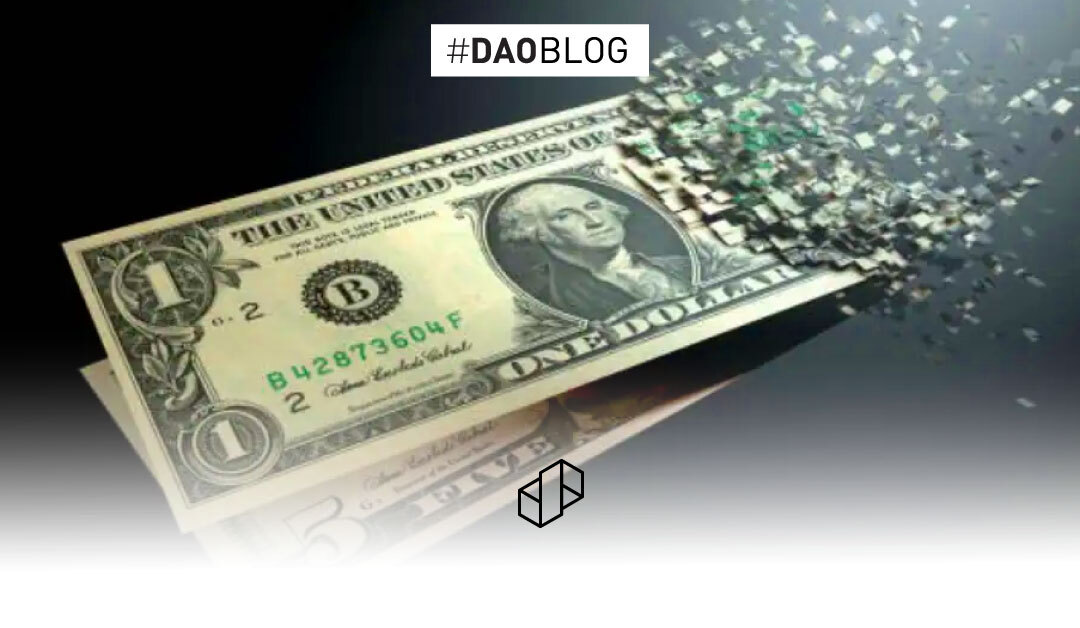
De-Dollarisation: Growing revolt against the US Dollar, and global dynamics
The US dollar has long enjoyed being the dominant global reserve currency, facilitating international trade and serving as a symbol of economic power. However, recent global financial crises, geopolitical tensions, the rise of newer economies and digital currencies, and the widespread use of US sanctions have led to a growing revolt against the dollar’s dominance, as countries seek to reduce their reliance on the greenback.
Why do we need a global reserve currency?
Throughout history, dominant currencies have emerged based on their stability, trustworthiness, and ease of transacting. As civilizations expanded their trading networks, the emergence of dominant currencies facilitated commercial transactions across regions and kingdoms. The Spanish real, Dutch guilder and British pound have all served as global reserve currencies in the past, reflecting the economic power of their respective empires. The US dollar took over as the dominant currency after World War II, backed by the country’s control over the majority of the world’s gold reserves.
What is de-dollarisation?
De-dollarisation refers to the process by which countries aim to reduce their reliance on the US dollar as a reserve currency, medium of exchange, or unit of account. While the term was initially coined in the 1970s, it has gained renewed prominence in recent times due to various factors reshaping the global financial landscape.
Why are countries talking about de-dollarising?
Several reasons drive countries to pursue de-dollarisation. One primary concern is the diminishing stability of the US dollar, eroding trust among market participants. The US Government’s practice of printing dollars to finance its debt has led to inflation and reduced the attractiveness of the dollar as a store of value. Additionally, countries seek to reduce vulnerability to political pressure exerted by the US through sanctions, which disrupt trade and hinder economic growth. These events have sparked debates over the concentration of economic power in a single country’s hands. The most recent trigger for questioning the dollar’s dominance came with Russia’s invasion of Ukraine, which resulted in extensive economic warfare through the imposition of sanctions, giving room to other currencies to facilitate trade with Russia.
The push for alternatives:
One notable initiative challenging the dollar’s dominance comes from the BRICS countries—Brazil, Russia, India, China, and South Africa. These emerging economies have been collectively exploring alternatives to the dollar, with the potential to reshape the global financial landscape. By leveraging their combined economic power, these countries aim to reduce their dependence on the US dollar and foster a more diversified and balanced international monetary system. China has been leading the charge in promoting the internationalization of the yuan, aiming to reduce its reliance on the dollar for trade. Through strategic partnerships and bilateral agreements, these countries have been exploring the use of alternative currencies for their transactions, thereby circumventing the reach of US sanctions.
The process of de-dollarisation is not easy
The process requires countries to develop their own financial systems and to find other currencies they can use for trading. The potential benefits of de-dollarisation are significant. It could help reduce the risk of financial crises, it could promote economic growth, and it could reduce the power of the US government.
The US dollar has been the world’s reserve currency for over 70 years and is used in over 80% of international trade. Hence, de-dollarisation is a complex issue, but it is one that is worth understanding. The future of the USD is uncertain, and de-dollarisation could have a major impact on the global economy.
Potential benefits of de-dollarisation:
Reduced risk of financial crises: By diversifying away from a single dominant currency, the risk of financial crises triggered by the fluctuations of the US dollar is minimized. This should help create a more stable global financial system.
Promoted economic growth: By not relying on a single global currency, countries gain greater control over their economies. This autonomy can allow them to pursue policies aligned with their own interests, potentially driving investment and economic growth.
Balanced power dynamics: De-dollarisation has the potential to rebalance power dynamics in the global financial system by reducing the influence and control of the US government. This could foster a more equitable and multipolar world economy.
Challenges of de-dollarisation:
Complex process and infrastructure development: De-dollarisation necessitates the establishment of robust financial systems and finding alternative currencies for trade. This requires significant time, resources, and stronger global economies to back the new “reserve currency”.
International cooperation: De-dollarisation is not a unilateral effort. It requires collaboration and cooperation among countries willing to adopt alternative currencies for trade, which can be a challenging task.
Economic instability for unprepared countries: De-dollarisation may result in economic instability for countries ill-prepared for the transition. Local currencies could experience devaluation and increased inflation, posing challenges for those not adequately equipped to manage such changes.
In conclusion:
De-dollarisation represents a growing trend as countries seek to reduce their dependence on the US dollar as the global reserve currency. The historical rise of the dollar, the emergence of the BRICS countries, and the evolving geopolitical landscape all contribute to the shifting dynamics of global reserve currencies. While the future outlook remains uncertain, it is evident that the global financial system is gradually moving towards greater diversification and multipolarity. Adapting to this changing landscape requires careful navigation and international collaboration to shape a more resilient and balanced global economy.

Burhan ul Haq
Senior Manager Performance Marketing

 Book a Meeting
Book a Meeting